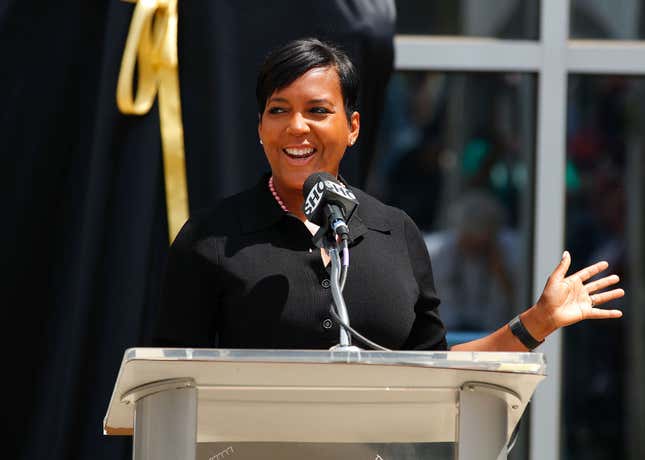
For low-income residents struggling to make ends meet in the city of Atlanta, Georgia, some help is on the way. On Tuesday, Mayor Keisha Lance Bottoms announced that 300 residents will be receiving $500 per month for a year in a pilot for basic income.
The program is called the Income Mobility Program for Atlanta Community Transformation (IMPACT) and is a partnership between the city and the Urban League of Greater Atlanta. Those seeking to register must be over 18 and have a maximum income of 200 percent of the federal poverty line. Participants in the program will be chosen at random from everyone who registers.
According to Newsweek, Mayor Bottoms had more to say about what the program embodies:
“We are seizing this moment to realize Dr. Martin Luther King Jr.’s vision for addressing economic security and pervasive poverty,” Lance Bottoms said. “Dr. King said, ‘The curse of poverty has no justification in our age.’ In the spirit of Dr. King’s vision for the beloved community, the launch of the I.M.P.A.C.T. program takes us another step closer to creating One Atlanta - an affordable, resilient and equitable Atlanta.”
Applications are set to open soon. The mayor’s office encouraged residents to see if they qualify and join a waitlist at ulgacoaimpact.org, where the program is described in detail. The IMPACT pilot is not the only source of stimulus in Georgia. An $850 per month program aimed at Black women in Georgia by the Georgia Resilience & Opportunity Fund was also announced in December. It aims to give the money to 650 women for two years.
This is not the only basic income program in the country–in fact, there are currently 33 in existence. Notably, one in Compton, California, under Compton Pledge, provides $1,800 every three months for two years to 800 low-income residents. HudsonUp in Paterson, New Jersey, gives $500 per month for five years to 25 participants.
These pilots are used to help those who are shut out of welfare programs, as noted by co-director of Compton Pledge to NPR:
“Guaranteed income makes a case for investing in our undocumented neighbors and formerly incarcerated residents,” Soon-Shiong she said. “In doing so, it addresses the reality of the nation’s fragmented, punitive welfare structure.”
In 2019, then-Mayor Michael Tubbs of Stockton, Calif helped create the Stockton Economic Empowerment Demonstration or SEED. The program randomly selected residents $500 per month for two years with no strings attached. An extensive study found that SEED ”increased recipients’ full-time employment by 12 percentage points and decreased their measurable feelings of anxiety and depression, compared with their control-group counterparts.”

